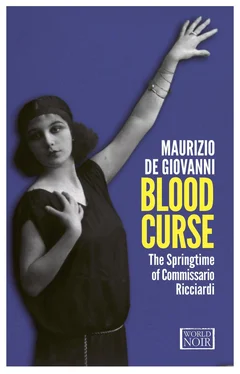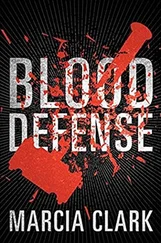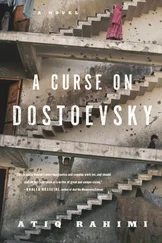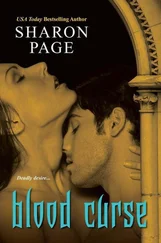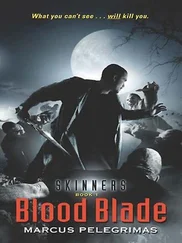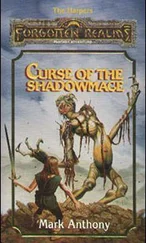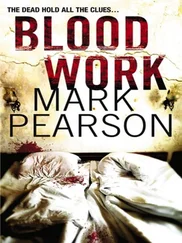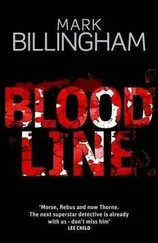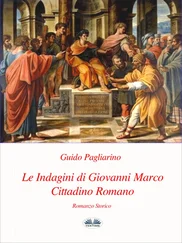Maurizio de Giovanni - Blood Curse
Здесь есть возможность читать онлайн «Maurizio de Giovanni - Blood Curse» весь текст электронной книги совершенно бесплатно (целиком полную версию без сокращений). В некоторых случаях можно слушать аудио, скачать через торрент в формате fb2 и присутствует краткое содержание. Жанр: Исторический детектив, Исторический детектив, на английском языке. Описание произведения, (предисловие) а так же отзывы посетителей доступны на портале библиотеки ЛибКат.
- Название:Blood Curse
- Автор:
- Жанр:
- Год:неизвестен
- ISBN:нет данных
- Рейтинг книги:3 / 5. Голосов: 1
-
Избранное:Добавить в избранное
- Отзывы:
-
Ваша оценка:
- 60
- 1
- 2
- 3
- 4
- 5
Blood Curse: краткое содержание, описание и аннотация
Предлагаем к чтению аннотацию, описание, краткое содержание или предисловие (зависит от того, что написал сам автор книги «Blood Curse»). Если вы не нашли необходимую информацию о книге — напишите в комментариях, мы постараемся отыскать её.
Blood Curse — читать онлайн бесплатно полную книгу (весь текст) целиком
Ниже представлен текст книги, разбитый по страницам. Система сохранения места последней прочитанной страницы, позволяет с удобством читать онлайн бесплатно книгу «Blood Curse», без необходимости каждый раз заново искать на чём Вы остановились. Поставьте закладку, и сможете в любой момент перейти на страницу, на которой закончили чтение.
Интервал:
Закладка:
But Carmela would be denied the springtime. Not the flowers, though; she’d have those. It’s just that she wouldn’t see them.
Emma turned over on her side, careful not to awaken her husband, who lay sleeping to her left. Experience told her that when the movement of the soft woolen mattress roused him from sleep before he was ready, the selfish old man’s thousand-odd afflictions became that much more exaggerated. She scrutinized his profile in the dim light; the glow of the streetlights filtered in through the silk curtains. Had she ever loved him? If she had, she certainly couldn’t remember it now.
She smiled in the darkness, her cat eyes illuminated. Not another night, not another springtime without love. Her husband was sleeping with his mouth agape, his hairnet wrapped over his head, and his nightshirt buttoned snugly around his neck. God, how I hate him, she thought to herself.
Beyond the wooden planks that secured the door of the basso , the airless, windowless ground-floor hovel apartment, Gaetano could hear the rats in the vicolo . During the day, the rats vanished down the drains of the new sewer system, except for the big sick ones, which the children hunted down and killed; but at night, and all the past week, he’d heard them scurrying past. Maybe it was the warm weather on its way. His mamma had finally dropped off to sleep. He’d listened to her muffled sobbing, close by his side, until just an hour ago; then the weariness of her long day had won out. Two hours of peace for her, maybe three, before she had to start all over again. But he wasn’t sleeping; he was thinking about the decision they’d made. The decision they’d been forced to make. They couldn’t go on like this. He closed his eyes and, as he did every night, waited for sunrise.
Attilio couldn’t get to sleep. That night he’d been wonderful but, as usual, no one had noticed. He could feel the brooding frustration that was his frequent nightly companion poke at his stomach as he lay smoking a cigarette in the darkness. Unable to see, he let his gaze roam the walls; what did it matter, he thought, there was nothing to look at, nothing but poverty. Still, he knew, and he’d always known, that someday he’d be rich and famous, revered and adored. Like that conceited lout who had nothing that he didn’t have in spades. It all starts with money. When you have money, the rest follows. Mamma had always told him that, ever since he was a little boy. Money before all else. Just one more week. Then he’d be done with dreary rooms in tawdry boardinghouses.
In the depths of her uneasy slumber, Filomena was dreaming. In her dream, she was standing outside her own front door and watching herself emerge from the house, bundled into a long black shawl, her face covered, as always, to conceal herself.
The door was emblazoned with a word, written in red paint in huge letters: WHORE. Just that one word, simple and straightforward, as though it were a last name. She saw her head droop in shame, guilty without guilt. Whore. No men, no love affairs, no lingering looks or smiles. A whore all the same. In her dream she felt the anguish, the fear that her son would see the word when he came home. Her fingers wet with tears, she tried to rub it off, but the harder she tried the bigger it grew, staining her hands red. Red with an age-old crime: the crime of being beautiful.
Enrica was sleeping on the first night of the new season. On the night table were her eyeglasses, a book, and a glass half-full of water. Her nightgown was folded on the armchair, under the frame with her embroidery.
In the black shade of dreams, an unfamiliar touch, a strange scent, and two eyes staring at her. Green eyes. In her dream, the young woman felt the arrival of spring, stirring her blood.
Just a dozen feet away, but so far he might as well have been on the surface of the moon, the man had fallen asleep. He’d eaten his dinner, then he’d listened to the radio as he watched her at her embroidery, through the window. Entering into someone else’s life, as if it were his own. Touching objects with someone else’s hands, laughing with someone else’s mouth, imagining sounds and voices that he couldn’t hear through the glass.
Then sleep-bringing a new sense of disquiet, a different anxiety under the skin-seemed like an affliction, but in fact it was the arrival of spring: blood searching for a way out. And at last, the darkness that contained the images of his greatest fears, the last remnant of his innocence.
In his dream, the man was a little boy again, and it was summertime; the heat scorched his skin. He was running head down through the vineyard next to the courtyard of his father’s house, playing by himself, as always. In his dream, he could smell the scents of his own sweat and of the grapes. And then the scent of blood. The blood of the dead man sitting on the dirt in the shade, his legs stretched before him, his arms resting on the ground, his head lolling over onto one shoulder. The handle of the field knife protruding from his ribcage like a stump, an abortive third limb. As the man slept, he gasped in childlike astonishment.
Like before, the corpse lifted its head, and like before, it spoke to him; and the most horrific thing was that, like before, it seemed perfectly natural to him for the corpse to speak. In his dream, he turned and fled once again; and the man who the child had become uttered a lament through his slumbering lips. There was no chance of escape; a hundred, a thousand dead men would speak to him from unknown mouths; just as many times, they would look at him with empty eyes and reach out to him with broken fingers.
Outside the window, spring was waiting.
III
He liked strolling through the city in the early morning. The streets were almost empty, practically silent aside from the distant calls of early-stirring street vendors. Not making eye contact, not having to look down at the street to avoid showing his face, his eyes.
He knew he had a highly developed sense of smell. Not surprisingly, this wasn’t a particularly good thing, because there were far more bad smells than there were good ones. Still, on a morning like this one, he could detect the perfume of the green hills, well hidden under the miasmas that rose from the stench-ridden city quarters, and winning out over the smell of the sea. It reminded him of the aromas of Fortino, the small town in Cilento where he was born and where, without knowing it, he’d been happy for the last time. It was the smell of nature, primal and luxuriant, embracing mankind like a mother.
A subtle pleasure, and a worry; he knew what awaited him. Springtime, Ricciardi mused as he walked toward Piazza Dante: it changed people’s souls like so many leaves on the trees; stern, dark, lofty trees, strong and unyielding in their centuries-long wait, suddenly went crazy in that season, showing off garish blossoms. In much the same way, even the most stable people suddenly got the strangest ideas into their heads.
Though he had only just turned thirty, Ricciardi had seen, and saw on a daily basis, exactly what every single individual was capable of, however innocuous that person might appear at first glance. He had seen, and continued to see, far more than he wanted and more than he ever would have asked for; he saw pain; he saw grief.
Overwhelming grief, pain that repeats itself, over and over. The anger, bitterness, and even the strutting irony that came with death. He had learned that death by natural causes settled its accounts with life, amicably and conclusively. It left no lingering footprints in the days that followed, it snipped off all the threads and sutured the wounds, before heading off down the road bearing its load, wiping its bony hands on its black tunic. But that’s not how violent death worked; it didn’t have time. It had to leave in a hurry. In those cases, death staged a show, offering up the portrayal of the final pain and grief for the eyes of Ricciardi’s very soul; it was heaped upon him, the sole spectator of the rotten theater of human evil. The Incident, he called it, or even better, the Deed. And the idea that death in its hasty departure hadn’t had time to settle its accounts washed over him like a wave, demanding vengeance. Those who leave the world in this manner do so with a backward glance. And they left messages that Ricciardi gathered, listening to that last, obsessively repeated thought.
Читать дальшеИнтервал:
Закладка:
Похожие книги на «Blood Curse»
Представляем Вашему вниманию похожие книги на «Blood Curse» списком для выбора. Мы отобрали схожую по названию и смыслу литературу в надежде предоставить читателям больше вариантов отыскать новые, интересные, ещё непрочитанные произведения.
Обсуждение, отзывы о книге «Blood Curse» и просто собственные мнения читателей. Оставьте ваши комментарии, напишите, что Вы думаете о произведении, его смысле или главных героях. Укажите что конкретно понравилось, а что нет, и почему Вы так считаете.
